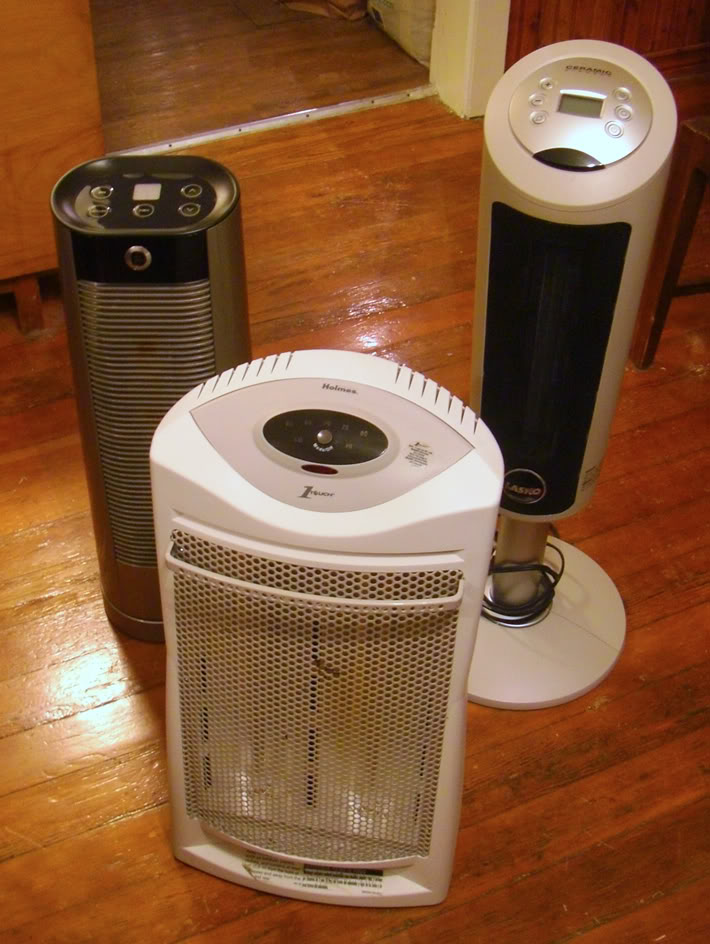When Using Alternative Home Heating Systems - Use Wisely & Safely

Winter 2024 has officially begun. The first day of winter occurred on December 21st and as the weather becomes colder, homeowners will be seeking alternative and economical methods to keep warm. The increase in the use of home heating appliances also increases the risk of home heating fires; the leading cause of residential fires and fire-related deaths. According to NFPA between 2018 – 2022, space heaters and heating stoves were responsible for approximately half (46%) of heating equipment fires accounting for 76% of deaths and 72% of injuries that occur during the months of December, January, and February.
The Prince William County Fire and Rescue System urges residents to be vigilant when using alternative heating methods by following these simple safety tips to keep you and your loved ones safe and warm:
FIREPLACES, WOOD STOVES, AND OTHER FUEL-FIRED APPLIANCES
Fires that originate from these appliances are referred to as “confined” fires. Wood stoves, the most popular category of wood-burning heaters, causes thousands of residential fires each year. Be sure to:
- Install wood burning stoves following manufacturer’s instructions or have a professional do the installation.
- According to the Virginia Uniform Statewide Building Code (VUSBC), a permit is required when:
- Installing a prefabricated fireplace, insert, or wood stove.
- According to the Virginia Uniform Statewide Building Code (VUSBC), a permit is required when:
- Keep fireplaces and woodstoves clean.
- Have a certified chimney specialist clean annually.
- Keep the area around fireplaces and woodstoves clean and free of debris, decorations, and flammable materials.
- Always use a metal or heat-tempered glass screen with fireplaces.
- Install spark screens and caps on chimneys.
- Install stovepipe thermometers to monitor flue temperatures.
- Keep air inlets open on woodstoves and fireplaces.
- If closed, inlets cause creosote buildup and lead to chimney fires.
Safely Burn Fuels
- NEVER use flammable liquids to start a fire.
- Use only seasoned wood.
- Certain types of wood, like soft moist wood, increase creosote buildup.
- Build small fires that burn completely and produce less smoke.
- NEVER leave a fire unattended in a fireplace.
- Extinguish fire before leaving the house or going to bed.
When removing fireplace ashes precautions should be taken to prevent fires or injuries:
- Wear heavy leather gloves when cleaning embers and ashes out of your fireplace or wood burning stove to protect your hands from any hot embers.
- DO NOT place woodstove, or fireplace ashes in paper bags or any other combustible container.
- Dispose of embers and ashes in a metal container with a lid. (Remember, ashes can remain hot for several days so they should be stored on a noncombustible surface or spread out on the ground at least 10 feet away from your home and any nearby building or combustible material.)
PORTABLE SPACE HEATERS
Kerosene Heaters
- Buy only Underwriter’s Laboratory/UL-approved heaters.
- NEVER fill your heater with gasoline or camp stove fuel.
- Both flare-up easily and increase the risk of fire.
- Use only fuels appropriate for the appliance.
- Refuel outside and only after heater has cooled.
- DO NOT use kerosene heaters in small, enclosed areas.
- Potential for carbon monoxide (CO) poisoning.
- A person can be poisoned by a small amount of CO over a long period of time or by a large amount of CO over a shorter amount of time.
- Install and maintain CO alarms to avoid the risk of CO poisoning.
- Potential for carbon monoxide (CO) poisoning.
- When using, keep a window ajar or the door open.
- Annually, clean kerosene heaters and replace wicks.
Electric Space Heaters
- Buy only heaters with Underwriter's Laboratory (UL) safety listing.
- Be sure it has a thermostat control mechanism and automatically switches off if tipped over.
- ALWAYS unplug when leaving the room or going to bed.
- Avoid using extension cords.
- NEVER use frayed or damaged cords.
Whether you’re using a stationary or portable heating appliance:
- Keep anything that can burn at least 3 feet away from heating equipment, e.g., the furnace, fireplace, wood stove, or portable space heater.
- More than half of all home heating fire deaths are the result of combustibles too close to the heat source.
- Have a three-foot kid-free zone around open fires and space heaters.
- NEVER use your oven to heat your home.
- Remember to turn portable heaters off, if applicable, unplug when leaving the room or going to bed.
To significantly increase your chances of surviving a fire in your home, by more than double, install smoke alarms and sprinklers in the home. In addition, develop and practice a home fire escape plan and be sure everyone is familiar with the plan.
For additional information on home heating safety, visit the National Fire Protection Association nfpa.org and the U.S. Fire Administration usfa.fema.gov/.
